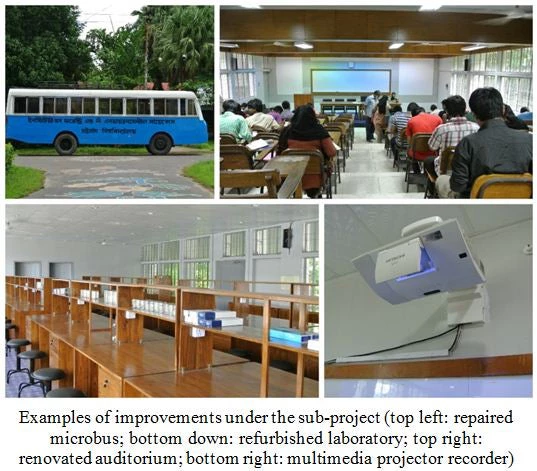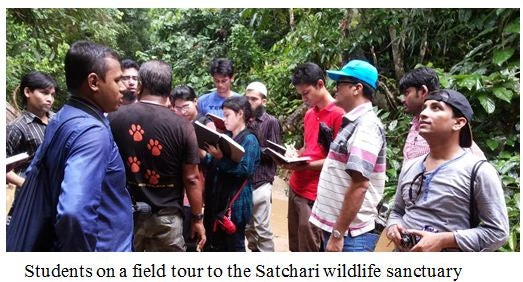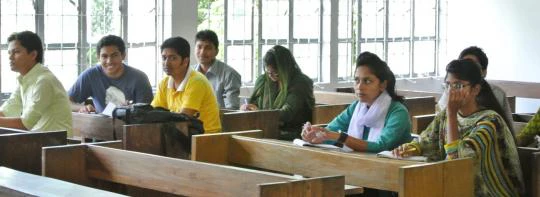Faced with pressure of an increasing number of students, education quality has been a central concern for the universities and society at large in Bangladesh. Bangladesh has been a shining example in increase access and quality to primary and secondary education, but similar progress has not yet been seen at the tertiary level. Educationists are concerned that higher education, in its current form, may not be able to supply sufficient numbers of highly trained and motivated individuals to meet the challenges of the twenty-first century. Such worries are not completely groundless. At many universities, facilities and equipment such as laboratories, libraries, equipment, journals etc. were often in short supply or outdated.
The Academic Innovation Fund (AIF) initiative under Higher Education Quality Enhancement Project (HEQEP), is helping universities to overcome such challenges. A number of faculties have already taken advantage of the opportunity to bring about improvements in teaching, learning, and facilities.

The faculty had long suffered from chronic shortages of essential teaching and learning tools. The sub-project has transformed the facilities and brought in new equipment to improve the faculty’s teaching and learning environment. For example, the lecture auditorium and classrooms, which hardly had any teaching and learning equipment, has been turned into a resourceful learning space with a multimedia projector, high-speed internet and new classroom furniture which foster lectures that encourage greater participation utilizing modern teaching styles. Further, quality of practical lab classes has improved dramatically as all the three laboratories have been refurbished and modernized with proper safety and waste management system as well as new lab equipment and reagents. The sub-project also greatly enhanced utilization of ICT in teaching. Students are learning with an updated computer room which now has 40 new desktop computers loaded with statistical and modeling software for environmental research.
What is particularly significant is the way that the sub-project has made teaching and learning much more participatory.

Under HEQEP, nearly 150 AIF sub-projects like this one have been implemented focusing on developing a world-class learning environment and improving the quality of education for the best and brightest minds of Bangladesh.



Join the Conversation